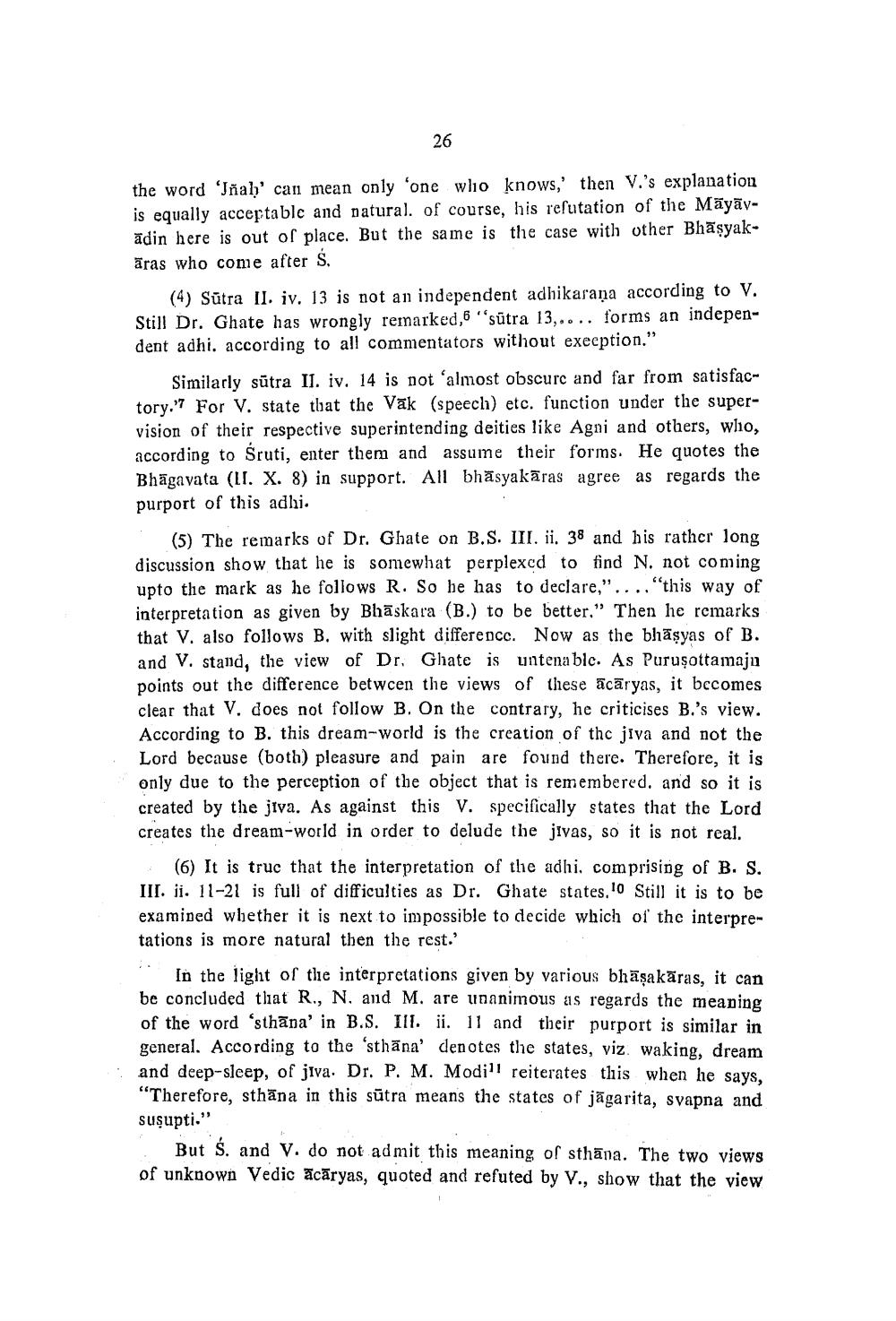________________
26
the word 'Iñah' can mean only one wlio knows,' then V.'s explanation is equally acceptable and natural. of course, his resutation of the Māyāvādin here is out of place. But the same is the case with other Bhāṣyakāras who come after S.
(4) Sūtra II. iv. 13 is not an independent adhikarana according to V. Still Dr. Ghate has wrongly remarked, 6 "sūtra 13,.... forms an independent adhi. according to all commentators without execption."
Similarly sūtra II. iv. 14 is not almost obscurc and far from satisfactory.7 For V. state that the Vāk (speech) etc. function under the supervision of their respective superintending deities like Agni and others, whio, according to Sruti, enter them and assume their forms. He quotes the Bhagavata (LI. X. 8) in support. All bhäsyakāras agree as regards the purport of this adhi.
(5) The remarks of Dr. Ghate on B.S. III. ii. 38 and his rather long discussion show that he is somewhat perplexed to find N. not coming upto the mark as he follows R. So he has to declare,".... this way of interpretation as given by Bhāskara (B.) to be better." Then he remarks that V. also follows B. with slight difference. Now as the bhāşyas of B. and V. stand, the view of Dr. Ghate is untena ble. As Puruşottamaja points out the difference betwcen the views of these ācāryas, it becomes clear that V. does not follow B. On the contrary, he criticises B.'s view. According to B. this dream-world is the creation of the jiva and not the Lord because (both) pleasure and pain are found there. Therefore, it is only due to the perception of the object that is remembered, and so it is created by the jiva. As against this v. specifically states that the Lord creates the dream-world in order to delude the jivas, so it is not real.
(6) It is true that the interpretation of the adhi, comprising of B. S. III. ii. 11-21 is full of difficulties as Dr. Ghate states, 10 Still it is to be examined whether it is next to impossible to decide which of the interpretations is more natural then the rest.'
In the light of the interpretations given by various bhäşakāras, it can be concluded tliat R., N. and M. are unanimous as regards the meaning of the word 'sthāna' in B.S. III. ii. 11 and their purport is similar in general. According to the 'sthāna' denotes the states, viz. waking, dream and deep-sleep, of jiva. Dr. P. M. Modi'l reiterates this when he says. "Therefore, sthāna in this sūtra means the states of jägarita, svapna and suşupti."
But ś. and V. do not admit this meaning of sthāna. The two views of unknown Vedic ācāryas, quoted and refuted by V., show that the view




